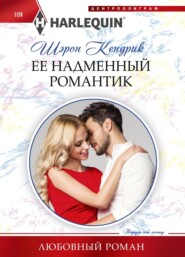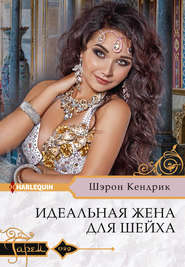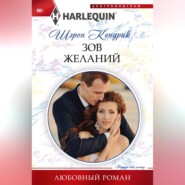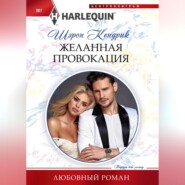По всем вопросам обращайтесь на: info@litportal.ru
(©) 2003-2024.
✖
Kiss And Tell
Автор
Год написания книги
2018
Настройки чтения
Размер шрифта
Высота строк
Поля
‘I’m a patient man.’ He smiled, but the smile did not reach his eyes, and for the first time since she had decided to contact him Triss felt a whisper of fear skittering down the length of her spine.
‘Are you?’ she asked him in a low voice. ‘You must have changed, then, Cormack.’
‘We all change, Triss. It’s inevitable—it’s part of life and of growth. Without change, we stagnate and die.’
And suddenly it was more than just reluctance to tell him about Simon; it was fear.
For Cormack was fundamentally a man of morals—an honourable man.
Once, in a rare, confiding moment, he had told her that in the past he had fallen for the wife of one of his greatest friends—something which he had despised himself for doing. He had convinced himself that he had kept his affection secret, but the woman must have guessed—or maybe it had been what she had been praying for herself.
She had waited until her husband was away on a trip, and then had plotted her grand seduction. She had crept into Cormack’s bed late one night, knowing he was at a party, and lain in wait for him in all her glorious golden nakedness.
Triss remembered the look of intense strain etched on his face as he had described how he had quietly asked the woman to leave.
‘But wasn’t it tempting—to let her stay?’ Triss had asked him breathlessly.
Lying next to her in bed, looking so bronzed and so gorgeous, Cormack had given her a look which had made her feel terribly young and terribly naive. ‘Of course it was tempting,’ he had answered quietly. ‘The forbidden always is. But friendship rates highly in my book. Certainly above lust.’
‘Lust?’ she had queried, appalled. ‘Not love?’ He had smiled coldly. ‘How could it be love?’ he asked her. ‘To love someone you have to get to know them properly—and you certainly can’t do that while they are married to someone else.’
Strange that she should remember that conversation now, thought Triss—especially after all this time. Was some self-protective instinct reminding her of just how ruthless and cold Cormack could be when he chose?
Triss had eyes which were sometimes green and sometimes gold—depending on the light, or how she happened to be feeling at the time. In her modelling days she had acquired the skill of being able to make her face reflect whichever mood the art director was searching for, but these days she was badly out of practice.
She let her heavy lids drop, like a demure Victorian heroine, for fear that Cormack’s intelligent, searching eyes would guess at more than she wanted him to.
‘So tell me, have you changed, sweetheart?’ he queried in that lilting Irish accent which managed to be soft and sweet and hard and sexy all at the same time.
‘I suppose I must have done,’ answered Triss slowly, for she certainly could not have imagined taking motherhood so much in her stride when she was living with Cormack.
In fact, when she thought about it now, she had taken nothing in her stride when she’d lived with Cormack. But then she had been completely out of her depth. And, although she’d been earning a fortune from modelling when they had met, her fame had been small-beer when compared with the man who had been dubbed ‘Hollywood’s most eligible bachelor’ by the trade papers as well as the tabloids.
Triss had always been scornful of such extravagant soubriquets, and it hadn’t been until she’d met Cormack Casey that she’d realised that for once the papers had not exaggerated...
CHAPTER TWO (#u625e6ed4-e7ba-5b1c-b124-6fa4895b366b)
TRISS first met Cormack in the most romantic city in the world.
She met him in Paris. In springtime.
In fact, Cormack told her much later that he would never have written it as it had actually happened—it was so corny that audiences would never have believed it!
But it did happen. Like a dream come true.
Cormack had been commissioned to write a screenplay around a little-known book by F. Scott Fitzgerald which was set in France’s spectacular capital.
For two months he isolated himself from everyone he knew and rented a roomy but fairly basic apartment at the top of an old building which had views of the city to die for.
He mixed solely with the locals, and in eight weeks went from speaking a smattering of restaurant French to being passably fluent—with a very good line in colloquial insults!
For the next two months he infiltrated the expatriate American community in order to get to grips with the characters he was supposed to be writing about. He was fortunate that the American Ambassador just happened to think he was the greatest thing since sliced bread, and introduced Cormack to just about every influential American living in Paris!
At the end of it all, his research completed, Cormack was mentally and physically exhausted, and sought a few days of winding down before he went back to his home in Malibu to write his screenplay.
Sitting at a table outside a pavement cafе in the glory of springtime Paris, Cormack sipped at his demi-tasse of coffee and watched the world amble by, relieved to feel some of the tension ebb out of his body—rather like water being slowly let out of the bathtub!
Immune to the polished sophistication of the native Frenchwomen, he was momentarily arrested by the vision of a woman so tall and so fragile that for a second he blinked, as if he had conjured up a creature from another world.
She was dressed in simple black jeans and white T-shirt, with a matching black denim jacket slung casually over her shoulder. A huge-brimmed straw hat covered with masses of violets was crammed down over her head, and the vibrant colour of the flowers contrasted dramatically with the almost translucent paleness of her skin.
She sat down at the table next to his, but did not appear to notice him—and Cormack was excellent at spotting women who merely pretended not to notice him—and he was fascinated by her abstracted air and her fey, understated beauty.
She pulled a book out—in English, Cormack noted with pleasure—and opened it up, but he was aware that her eyes gazed sightlessly at the pages. When the waiter came to take her order, she struggled so delightfully to instruct him in French that Cormack was enchanted to play the role of translator—and within ten minutes he managed to charm his way through the barrier of suspicion she had erected enough to share her table with her and, eventually, to get her to agree to dine with him that evening.
When he arrived to collect her at the hotel, she looked absolutely stunning, with her hair caught back in a soft French plait and wearing beautifully understated black jersey. Every Frenchman’s eyes narrowed lustfully at the sight of her, while Cormack could not remember feeling quite so elated at being out with a woman.
They ate mussels and rare steak and drank robust red wine in a bistro on one of the tiny uphill streets which stood beneath the mighty shadows of the Notre Dame. He found her relative innocence entrancing and she, in turn, was captivated by his lazy manner, which did nothing to disguise his rather awesome intellect.
They were on their second cup of coffee, with neither of them showing any particular desire to leave, when he asked her, very casually, ‘How much longer are you going to be in Paris?’
At that moment Triss cursed her job, and the commitments which went with it. ‘I leave tomorrow,’ she told him reluctantly, her huge eyes gleaming gold as they reflected the candlelight.
‘Pity,’ was all he said.
‘Yes,’ she agreed, and left it at that. Maybe he had someone back in the States? A man like Cormack couldn’t possibly be single, for heaven’s sake!
‘Let’s go, shall we?’ he said suddenly, and Triss felt a fierce rush of regret that the evening had to end.
Outside the restaurant, the moon was a gilded crescent decorating a star-splintered sky, and Cormack turned to her and said, ‘It’s a warm night. Shall we forget about the taxi and walk back to your hotel?’
‘Yes.’ She smiled instantly, then wondered if he was expecting to sleep with her. No way, she thought ardently as she stole a glance at that dark, craggy profile. However tempting she might find the prospect.
They talked non-stop on the journey back-about politics and art and whether it was time to legislate against motor cars in major cities—this after a speeding vehicle narrowly missed careering into Cormack’s shins.
He knew that she was a model—just as she knew that he was a scriptwriter—but in the heady anonymity of the blossom-strewn Parisian streets, their other lives seemed curiously unconnected.
And unimportant.
Some sixth sense warned Cormack to behave with the utmost propriety—indeed, he did not even attempt to kiss her as he left her at her hotel, though he sensed that that was what she wanted him to do more than anything else.
And when he did kiss her, at the airport the following afternoon, the world spun on its axis. They both stared at each other in silent amazement afterwards, as if they could not quite believe what had happened, and when he asked her to visit him in Hollywood she shyly said ‘OK’ without really thinking about it.
When Triss arrived back home in England, the episode seemed more like a dream than reality, and she waited to see what he would do next. If anything.
He sent a book.
Not flowers, but a novel he thought she might find ‘interesting’. He was the first man ever to acknowledge her mind rather than her model-girl looks, and Triss was absurdly flattered.

















